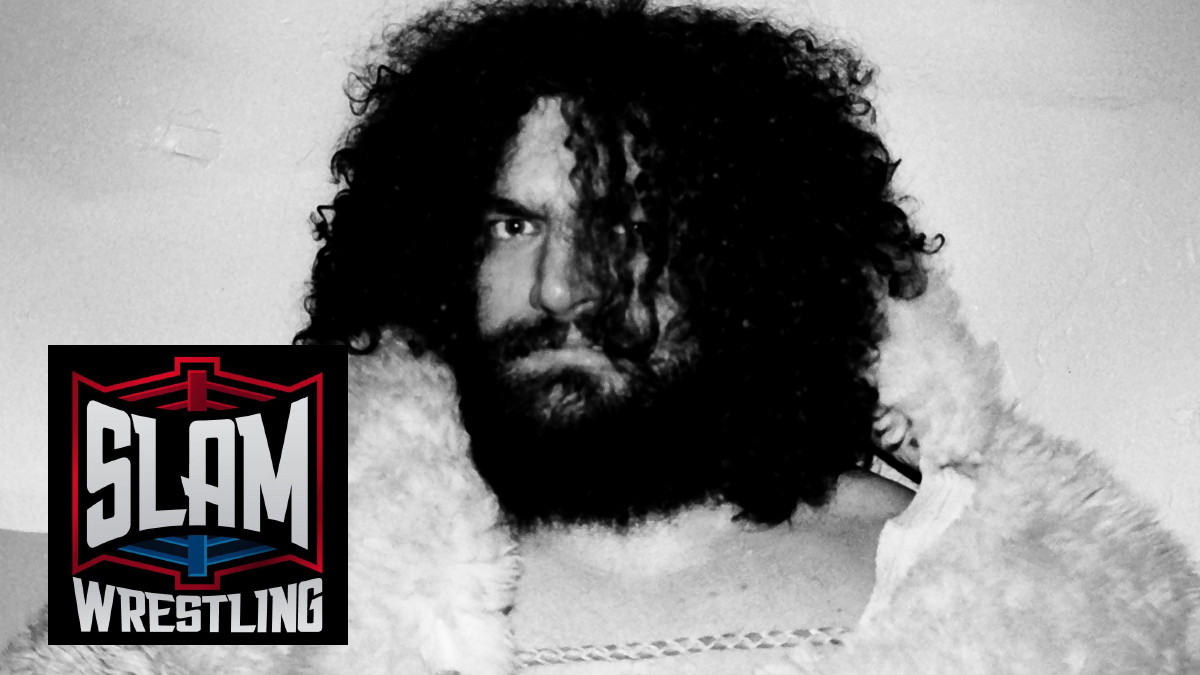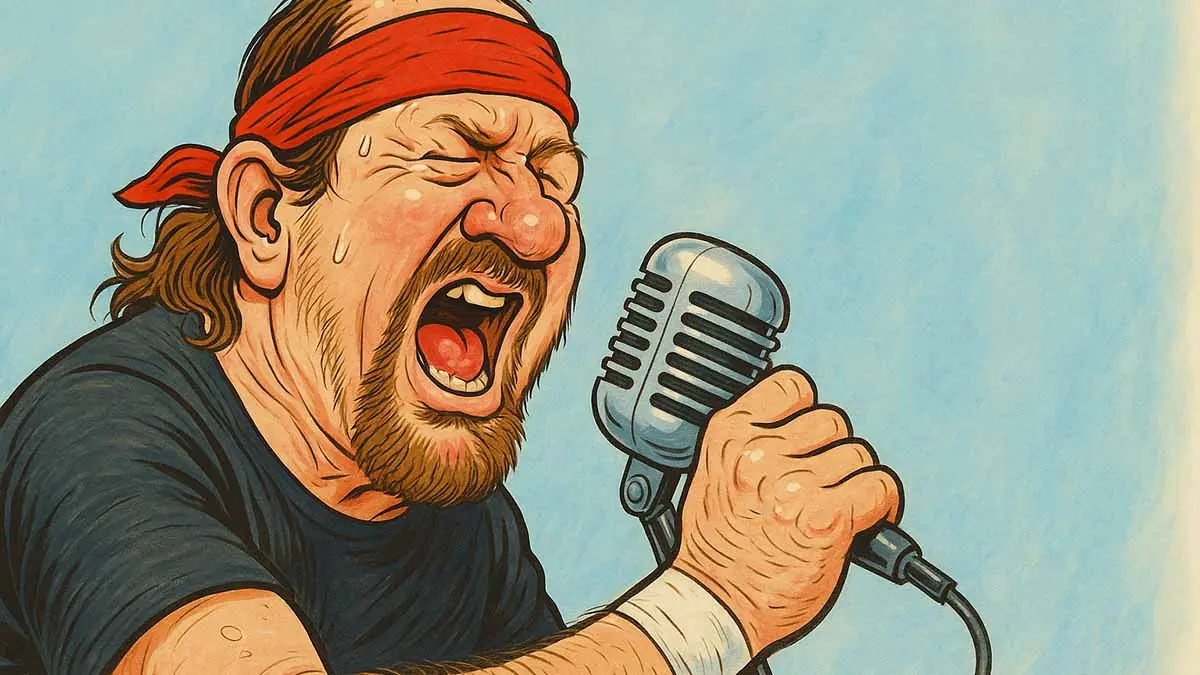Widow’s tale adds emotion to Brody book
With the recent tragic events involving the Benoit family still fresh in peoples’ minds, it brings to mind another of wrestling’s most notorious deaths, that of the legendary Frank Goodish, more famously known as Bruiser Brody. His life and legacy are celebrated in an excellent new book, Brody: The Triumph and Tragedy of Wrestling’s Rebel.

Co-written by Larry Matysik (Wrestling at the Chase: The Inside Story of Sam Muchnick and the Legends of Professional Wrestling), one of Brody’s closest friends stemming from their time together in St. Louis, and Brody’s widow, Barbara Goodish, the book is a tribute of the life of one of the most famous wrestlers to ever lace up the boots. The tale is told in dual voices, with Matysik focusing on the wrestler’s career ups-and-downs, and Barbara recounting the man’s personal life as seen through her eyes. Editor Michael Holmes of Toronto’s ECW Press deserves credit for taking a bold approach — this two-person perspective could have led to a confusing mess, but instead, he weaves them in a way that each of their stories in fact complements the other, giving the reader a truly unique experience.
That’s fitting when talking about Brody, because his entire career was very much a unique experience in its own right. Brody started wrestling in the early 1970s, and it wasn’t too long before his size, power and charisma captivated wrestling fans across the United States, and soon thereafter, the world. Thanks to his immense fan base in Japan, by the time he was killed in 1988, Brody was one of the most popular wrestlers in the world, arguably second only to Hulk Hogan. Matysik provides a keen insight into the journey that got him there. With multiple first-hand anecdotes by some of Brody’s industry peers — including Terry Funk, Buck Robley, Stan Hansen, Jim Ross, Gary Hart, Kevin Von Erich, Bob Orton Jr., and Bobby Jaggers — and other personal friends, he tells of Brody’s drive to perfect the physicality and the psychology to either infuriate or endear fans to the point that they would always want to buy a ticket to see Brody the next time he came to town. With a keen intelligence that belied his gruff exterior, Goodish smartly realized that wrestling was a business, and if things were done smartly, it could be a lucrative one to all concerned.
That thinking, it is said, often gave him a reputation as a trouble-maker who would go into business for himself. Indeed, the book is filled with stories from his friends involving Goodish refusing to co-operate with an opponent or a promoter where he felt doing so would ruin his credibility or that of the sport. Or, in his words, as remembered by Matysik, “You can’t earn a dime if you don’t do the right thing at the right time.” That kind of attitude, and those kind of actions may have been the smart thing to do business-wise, but they certainly resulted in him having less-than-loving relationships with many a promoter.
Which was the complete opposite of which he had with his wife and son. In chapters entitled, “Barbara remembers…”, she tells her own personal beauty-and-the-beast love story, falling in love shortly after meeting in the 1970s and remaining there until death did them part only 18 or so years later. She tells of Frank’s life out of the squared circle, as a loving husband and father to their son, Geoff. She shares tender stories of the man who, in his personal life, was an emotional giant as well as a physical one. Seeing both sides of the story really help flesh out the differences between Frank Goodish the man and Bruiser Brody the wrestler he portrayed.
And wrestle he did, achieving fame all over the world. He solidified his U.S. legacy through memorable stints in Texas, St. Louis, and even the WWF where he challenged Bruno Sammartino for the world title. Matysik and others provide stories galore about everyplace he wrestled, his ups and, especially when talking about dealing with promoters, his downs. Brody had little to be disappointed about with his career in Japan, though. His late ’80s stint is also given full coverage, and it is there where he cemented himself in that country’s lore as a god, along with Stan Hansen and Abdullah the Butcher with whom Brody had some of his bloodiest wars. Matysik delves into the politics of the Japanese scene, whereas Barbara goes more into her life with her son, missing Frank while he was on the road, cherishing any moment they could spend together, whether in airports, or during the precious few moments when he was at home between tours. Alas, nobody could have predicted how important that would become.
On July 16, 1988, in a locker room in Puerto Rico, Brody was stabbed to death. Witnesses claim that he was asked to join Jose Gonzales in the bathroom for a discussion, and sometime before he walked out, the ultimately-fatal blow had been dealt. Matysik’s fury is palpable in his words, and he quite openly calls Gonzales a murderer who got away with the crime (Gonazles was found “not guilty”). Barbara’s tale is just as emotional, and she opens her heart to the reader, sharing her pain and explaining how she and son Geoff have had to accept the senselessness of Frank’s death, and soldier on together. Again, it’s that type of story-telling that make this book a truly entertaining read. Matysik used to write the match results in the company’s programs back when he worked in St. Louis, and he hasn’t lost his touch. Particularly when describing some of Brody’s classic matches — the vivid detail that unfolds in print really gives a sense of the brutality and savagery that Brody could unleash. Turn a few pages, though, and Barbara tells a heartwarming tale about Frank gently picking up his newborn son for the very first time and cradling him in his powerful arms. In addition to the powerful narratives, their tales are supplemented by over 30 pages of amazing photos, taken at various stages of both his personal and professional life.
The net result is that Brody: The Triumph and Tragedy of Wrestling’s Rebel isn’t just a ‘wrestling book’, but rather the biography of a man who just happened to wrestle for a living. And, like the man himself, the end result is a product that’s greater than the sum of its individual parts.




